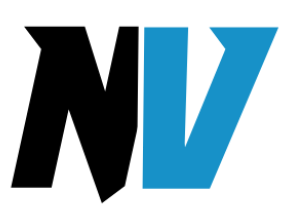Knowing how to deal with debt collectors legally is essential when creditors or third-party agencies attempt to recover overdue debts. This process typically begins when a debt becomes overdue, prompting the original creditor to refer the matter to a collection agency. These agencies are responsible for recovering the outstanding amount, often using various communication and negotiation tactics.
It is crucial to understand your legal rights in this situation to ensure fair treatment and avoid potential exploitation. By being informed about your rights, you can effectively navigate the debt collection process, protecting yourself from abusive or illegal practices. Recognizing these protections allows you to respond appropriately and safeguard your interests throughout the collection process. The process of dealing with debt collectors legally involves:
I. Understanding Debt Collectors
Knowing how to deal with debt collectors legally starts with understanding the different types of collectors involved in the recovery process. Internal collectors are directly employed by the original creditor or lender and are responsible for handling collections within the organization. External collectors, however, are third-party agencies hired to manage overdue debts on behalf of the creditor. In some cases, specialized law firms or collection firms may be engaged to pursue legal actions or collect debts directly.
Debt collectors typically use various methods to recover funds, including persistent phone calls, formal written notices, and, in rare cases, in-person visits. Phone calls are commonly used to demand payment, while letters act as formal notifications of the debt and request for payment. Though infrequent, in-person visits may occur depending on the nature of the debt and the collector’s approach.
In some cases, debt collectors may resort to more aggressive tactics such as threats or pressure to secure payment. These actions include intimidation, harassment, or false statements designed to coerce the debtor into paying. Recognizing these tactics is essential in understanding how to deal with debt collectors legally, helping you protect yourself from abusive practices while ensuring that all actions taken comply with legal standards.

II. Know Your Rights
When learning how to deal with debt collectors legally, understanding your rights is essential. The Fair Debt Collection Practices Act (FDCPA) is a federal law designed to protect consumers from abusive practices by third-party debt collectors. While it does not apply to original creditors, it provides important safeguards against harassment and exploitation. The FDCPA prohibits tactics such as threats, obscene language, excessive phone calls, and making false claims about the amount owed or the legal status of the debt. Additionally, it forbids unfair practices like collecting more than what is owed or contacting debtors during unreasonable hours.
Alongside federal protections, state laws can offer additional safeguards or impose stricter regulations on debt collection practices. These state-specific laws vary widely and may provide further rights for consumers. To ensure you fully understand how these local regulations apply to your situation, it is important to consult state resources or seek guidance from a legal expert specializing in consumer protection laws in your area.
III. Initial Steps When Contacted by a Debt Collector
If you’re wondering how to deal with debt collectors legally, the first step is to verify the legitimacy of the debt when you are contacted. Under the Fair Debt Collection Practices Act (FDCPA), you have the right to request written verification of the debt within 30 days of the initial contact. This allows you to confirm whether the debt is valid and whether the collector is authorized to recover it. If you believe the debt is incorrect or not owed, you can formally dispute it in writing. Be sure to include any relevant evidence and ask the collector to cease all communication until the dispute is resolved.
Another essential step is reviewing your credit report. Obtain a copy from each of the three major credit bureaus—TransUnion, Equifax, and Experian—and check for errors or discrepancies related to the debt in question. Carefully examine your report for inaccuracies and, if you find any, file a dispute with the credit bureau. Correcting errors can have a significant impact on your credit score and help ensure that the debt collection process is based on accurate information.
IV. Communicating with Debt Collectors
Managing your case and defending your rights need effective contact with debt collectors. When communicating in writing, it’s important to document all correspondence meticulously. Written communication provides a clear record of interactions and any agreements made. Use formal templates for requests such as debt verification or disputes, ensuring you include all necessary details like your personal information, specifics of the debt, and a clear statement of your request.
For phone communication, maintain a polite but firm demeanour. Avoid sharing personal information or agreeing to anything during the call. Instead, request written confirmation of any discussions or agreements to ensure clarity and protection. Additionally, many states allow the recording of phone conversations if at least one party consents. Check your local laws regarding recording, and consider informing the collector if you decide to record the conversation. This approach helps safeguard your rights and provides evidence if needed.
V. Negotiating with Debt Collectors
When negotiating with debt collectors, establishing a manageable payment plan or settling the debt for less can be effective strategies. To propose a payment plan, start by assessing your financial situation and offering a repayment plan that is both realistic and sustainable. Provide a detailed budget and suggest a payment amount you can consistently meet. Ensure that any agreed-upon plan is documented in writing, including specifics such as the payment amount, frequency, and duration. Both parties should sign this written agreement to formalize the arrangement.
If you would rather not pay off the entire loan, you can work out a lump-sum settlement. Propose a reduced amount and request that the remaining balance be forgiven. Make sure to get the settlement agreement in writing, confirming that the collector will accept the agreed amount as full payment and will not pursue any further action regarding the debt. Proper documentation of this agreement is crucial to prevent future disputes and ensures that the collector honours the terms of the settlement.
VI. Dealing with Unfair Practices
Recognizing unfair practices by debt collectors is crucial for protecting your rights. Examples of such violations include threats of legal action that the collector cannot legitimately pursue, contacting you at unreasonable hours, or using abusive and aggressive language. Identifying these actions helps you determine whether the collector is violating legal standards.
To address these unfair practices, it is important to document them meticulously. Keep detailed records of each incident, including the dates, times, and descriptions of the occurrences. Also, retain copies of any written communication related to these practices. If you experience such violations, start by filing a complaint directly with the debt collector in writing, requesting corrective action or a written apology. If the issue remains unresolved, escalate the matter by filing a complaint with regulatory agencies such as the Consumer Financial Protection Bureau (CFPB) or your state’s Attorney General’s office, which can provide further assistance and enforce compliance.

VII. Seeking Legal Help
Seeking legal help becomes essential when dealing with debt collectors if you encounter significant issues. You should consider consulting a lawyer if debt collectors are not adhering to the Fair Debt Collection Practices Act (FDCPA), or if you face a lawsuit related to your debt. A lawyer can offer crucial legal guidance, represent you in negotiations, and provide advocacy in court. It’s advisable to find an attorney who specializes in consumer rights or debt collection matters to ensure they have the expertise to address your specific situation effectively.
In terms of potential legal actions, if debt collectors violate the FDCPA or state laws, you may have the right to sue for damages. Consulting a lawyer can help you understand whether you have grounds for such a lawsuit and guide you through the process. Additionally, if your debt situation becomes overwhelming and other solutions have been exhausted, bankruptcy might be a viable option to consider. Bankruptcy can provide relief from debts but comes with significant long-term financial consequences, so it should be considered only after careful evaluation and consultation with a legal expert.
Conclusion
Knowing how to deal with debt collectors legally is essential for protecting your rights and managing your finances effectively. By understanding your legal rights under the Fair Debt Collection Practices Act (FDCPA), verifying debts, and communicating clearly with debt collectors, you can avoid abusive practices and ensure your financial interests are safeguarded. If necessary, seek legal assistance to address complex issues or violations.
Remaining informed and proactive is key to managing debt collection situations. By staying updated on your rights and responsibilities, you can prevent legal complications, resolve disputes more effectively, and negotiate better terms. Addressing potential problems early ensures you can protect yourself and make informed decisions throughout the debt collection process.

